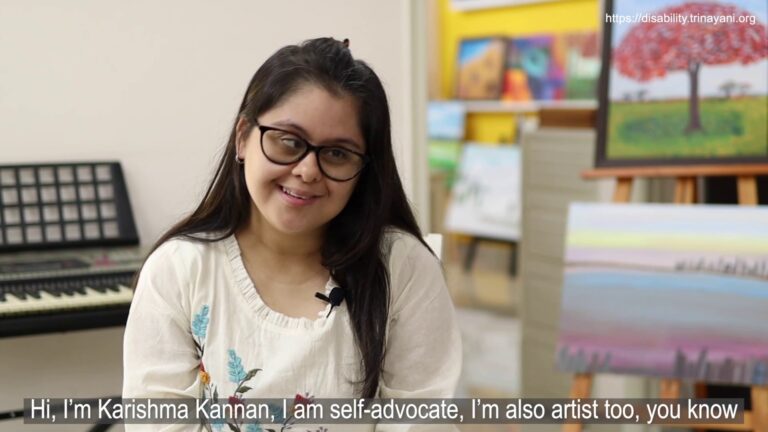The Echoing Educator
Meet Angshu Jajodia, an Assistant Professor at the National Institute of Technology, Durgapur, and an individual who challenges perceptions and stereotypes on a daily basis. In this film, Angshu shares his experiences as a deaf person navigating this world. He offers us a glimpse into his unique perspectives, highlighting the nuances of communication using hearing aids, the challenges of lip-reading and the importance of overall understanding and acceptance between all.
Join Angshu as he candidly addresses common misconceptions, sharing his thoughts on being underestimated, the importance of education for people with disabilities and the complexities surrounding language and communication choices for deaf children.
I’m Angshu Jajodia, Assistant professor at National Institute of Technology, Durgapur and I’m deaf.
*
Have you ever wished that you could hear?
I can hear, with my hearing aids, but not the way, of course, like hearing people can hear.
But I’ve never wished to hear per se like hearing people, because I was always brought up by my parents to feel that it is not anything different and not only that, because my hearing loss is from birth, I’ve never known it any other way.
As a hearing aid user, I was taught to lip read and lip reading is basically understanding speech through reading people’s lips.
In fact I stare very intensely at people’s faces when I talk to them and I request them not to cover their mouths when they speak to me.
So sometimes it is like, I actually tend to make them feel uncomfortable also sometimes, because I stare at them very intensely.
*
Have you ever felt that you were underestimated?
Honestly, it doesn’t matter if you’re deaf or you’re visually impaired or a wheelchair user, ultimately people look at your competency, when they, when they estimate you or underestimate you.
So what I believe is that if you’re competent at something, you will always be given responsibilities, irrespective of whether you have a disability or not. And again, I also believe that, people who are deaf or blind or wheelchair users or any other sort of disability, they should actually get an education because, education opens doors for them to show that they’re equally competent just like others.
And therefore, they should not be underestimated.
*
What would be your advice to parents of deaf children?
If any parent decides that they want their child to wear hearing aids, they need to first go to a proper go to a good audiologist or otologist to get their child’s hearing tested and after that they need to fit the child with the correct hearing aid based on the level of hearing loss.
After that the child needs to be put through speech therapy and auditory training, so that he and also the child needs to be exposed to a lot of language in various forms, be it through books, through conversation and through so many other ways possible.
It is then only that the child will learn to develop a rich vocabulary of language with which he can communicate with others at ease.
The other option available to a parent of a deaf child is to communicate with the child in Sign Language and teach the child Sign Language.
But again, my personal view is that in a country like India where the major mode of communication is through speech, I believe that if the child learns Sign Language, he is cut off from the, from communicating with the majority of the society.
Unfortunately, unlike in the US or UK or Europe, where society is much more inclusive and Sign Language is actually also considered a third language, in India it is not so.
And that is why, what I believe is that while I’m not denigrating Sign Language by any means but again, the utility of Sign Language in a country like India is very limited.
In fact if you, if you are aware, there are very few higher education opportunities in Sign Language, so the child is effectively cut off from accessing education at a very high level if they know only Sign Language.
So I believe that if a child learns Sign Language, the accessibility for a, a good good living is automatically reduced.
*
Why is the term deaf and dumb popular?
The term deaf and dumb popular because it is very easy to stick that label to people who cannot speak.
And of course, as I said before, Sign Language is still not a major, majorly accepted means of communication in our country, when you call them deaf and dumb which means that you are segregating them into that particular class or category of people who cannot speak and therefore cannot do anything else.
But remember, deaf people are just like anybody else, they can do everything provided they have the access to those opportunities.
Resources
More Videos
Learn more about disabilities and inclusion

Manju (Chronic Neurological Conditions)

Swarnalatha (Multiple Sclerosis)

Karishma (Down Syndrome)

Chetan (Hemophilia)

Yesheevardanbir (High Functioning Autism)

